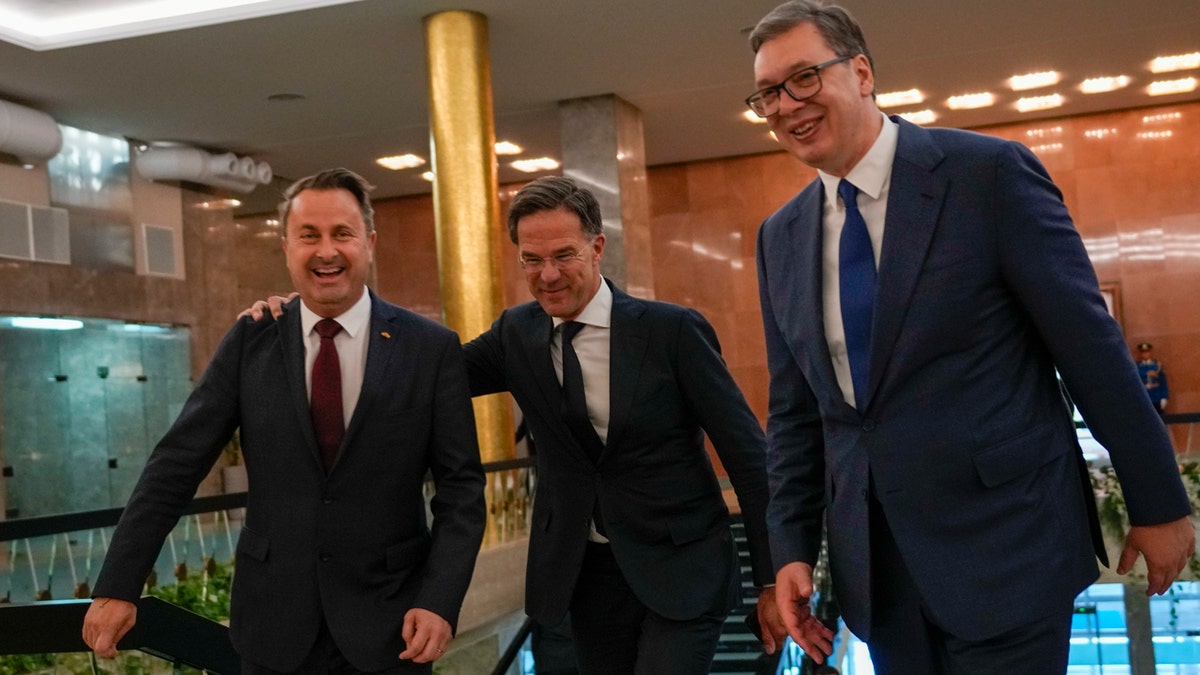Amidst the backdrop of the ongoing war in Ukraine, the prime ministers of the Netherlands and Luxembourg have called upon Serbia and Kosovo to take decisive action in de-escalating recent tensions. These tensions threaten to destabilize the Balkan region, a concern heightened by the current European security landscape.
Following a meeting with Serbian President Aleksandar Vucic in Belgrade, Dutch Prime Minister Mark Rutte and Luxembourg's Prime Minister Xavier Bettel underscored the critical need for both nations to pursue de-escalation and normalization of relations. They emphasized the EU-led dialogue as the crucial pathway to achieving this goal. Rutte stressed the broader implications of the situation, stating that regional stability is paramount, particularly given the ongoing conflict between Russia and Ukraine.

Luxembourgish Prime Minister Xavier Bettel (left) and Dutch counterpart Mark Rutte (center) met with Serbian President Aleksandar Vucic (right) in an effort to ease tensions between Serbia and Kosovo. (AP Photo/Darko Vojinovic)
The historical context of the Serbia-Kosovo conflict, marked by Belgrade's non-recognition of Kosovo's 2008 declaration of independence, adds another layer of complexity. Renewed tensions erupted in May following Kosovo's installation of ethnic Albanian mayors in Serb-majority northern Kosovo after an election largely boycotted by Serbs. The resulting clashes, involving international peacekeepers and ethnic Serbs, have raised concerns of a resurgence of wider conflict.
Both the U.S. and the EU are urging both sides to prioritize de-escalation, recognizing that normalized relations are a prerequisite for EU membership aspirations. Bettel echoed this sentiment, emphasizing the need for concrete action beyond mere rhetoric. Vucic expressed optimism about the prime ministers' visit, pledging Serbia's commitment to peace and stability. The international community's divided stance on Kosovo's independence, with Russia and China supporting Serbia's claims, further complicates the situation. The 1998-99 war, triggered by ethnic Albanian separatist rebellion and Belgrade's subsequent crackdown, serves as a stark reminder of the region's volatile history. NATO intervention ultimately led to Serbia relinquishing control, although Belgrade continues to assert its claim over Kosovo.
Comments(0)
Top Comments